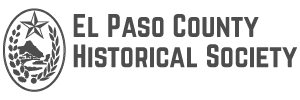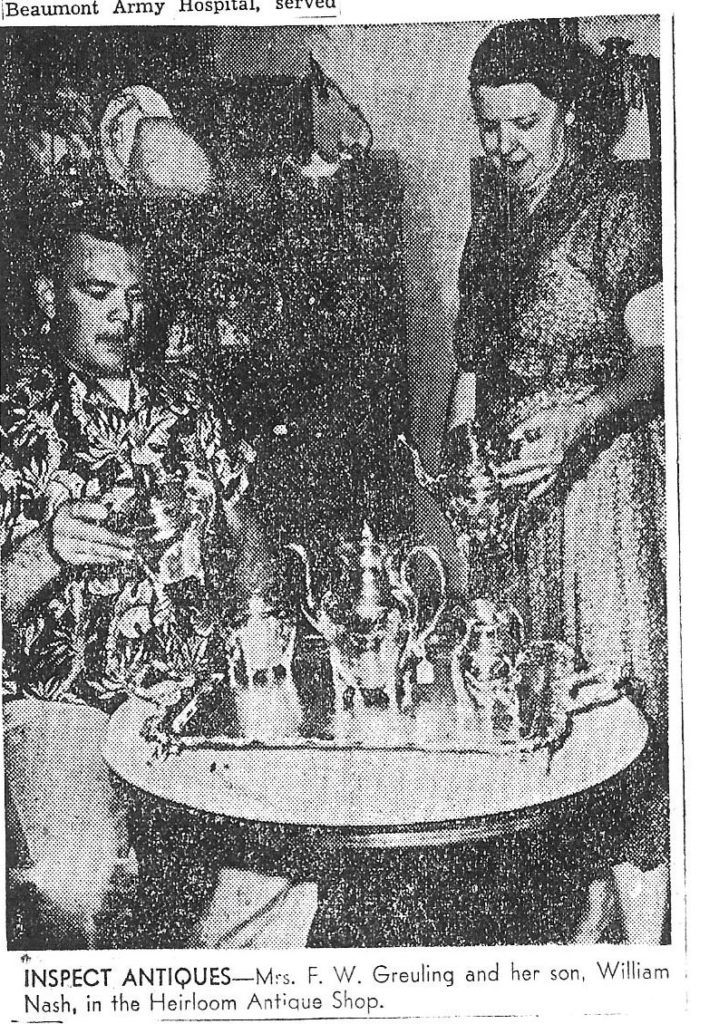Lydia Nash Grueling was born on October 18,1896 in Clifton.Texas. After graduation from high school she attended the Palmer Secretarial School.
Grueling married F.W. Grueling in 1920 in Lake Charles, Louisiana. The couple had 2 children.
They came to El Paso in 1921, living at Sunny Acres then moved to a house on Moon street in El Paso’s Lower Valley. Grueling went into business with her husband, then after his death in the early 1950’s, she took over the company, Westland Forwarding. She also owned and operated El Paso Plating Works and founded the Heirloom Antique Shop. Grueling was appointed the manager of the El Paso Freight Association. El Paso Plating Works receiving office was on 212 East Yandell, the antique shop and the Freight Association office were at the same location. During her time at El Paso Plating works, she oversaw construction of a new plating works factory on 2422 Wyoming. The first El Paso Plating works factory was on 2908 Durazno street. The Gruelings bought the plating works from the original owner and it was not doing well, but with her son, William Nash, they both made it into a success.
Grueling was also active in the community. She was president of the Lower Valley Women’s Club, a member of the El Paso Women’s Club, president of the New Mexico-El Paso Congregational Women Fellowship, she was also active in the Lower Valley Congregational Church and the Lower Valley Garden Club and the El Paso Women’s Department of the Chamber of Commerce. Greuling also went into real estate and was purchasing agent for a supply company. Grueling was active in the Ysleta School PTA and unsuccessfully ran for the Ysleta School Board against the incumbent, Jerry Stevens in 1942. Grueling died in 1988.
Joseph Longo
El Paso Historical Society Volunteer,

